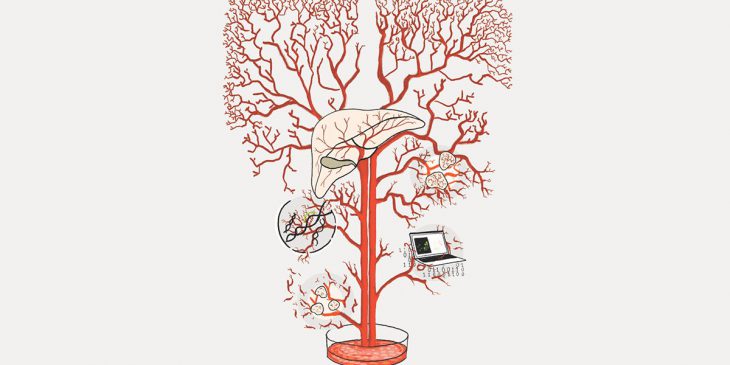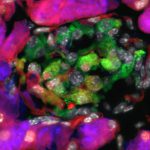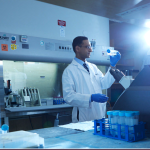Researchers from the University of Pittsburgh Liver Research Center, McGowan Institute for Regenerative Medicine and Carnegie Mellon University’s (CMU) Computational Biology Department have been awarded almost $1.5 million from the National Science Foundation (NSF) to develop new approaches for producing liver organoids — tiny, lab-grown human organs that have potential for disease modeling, drug discovery and transplantation.
“Mouse models are often used for research on human diseases, but there is a gap between studies in cells and animals and translation to humans,” said principal investigator Dr. Mo Ebrahimkhani, associate professor of pathology and bioengineering at Pitt and member of the Pittsburgh Liver Research Center and the McGowan Institute. “Organoids help fill that gap because they can capture the complexity of our human organs and tissues.”
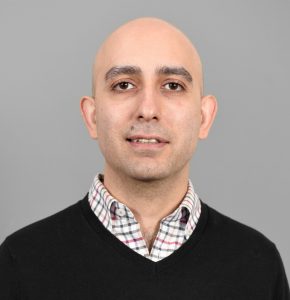
Dr. Mo Ebrahimkhani
To grow these mini organs, researchers start with induced pluripotent stem cells (iPSCs), which are made from adult cells. iPSCs can turn into almost any cell type, and given the right signals at the right time, they can grow into complex 3D organoids of multiple tissue types.
Traditionally, organoid development is directed by adding a cocktail of chemicals at different times. But this trial-and-error approach is hard to optimize and can introduce variability among batches, hampering reproducibility and scalability of organoid production and making it difficult to compare findings across labs. Another problem is that development can stall, leaving cells with immature or abnormal characteristics or lacking blood vessels, which are important for transplantation applications.
These challenges prompted the NSF’s call for research proposals that apply multidisciplinary approaches to understand processes of cellular differentiation during organ development and improve production of mature, functional cells or organoids.
Ebrahimkhani, in collaboration with Dr. Samira Kiani, co-principal investigator and associate professor of pathology at Pitt, and Dr. Ziv Bar-Joseph, professor of computational biology and machine learning who heads the Systems Biology Group at CMU, received funding to develop liver organoids that can be produced consistently and reliably. The researchers aim to program iPSCs with genetic instructions that guide cells to produce liver tissues with specified structure and function, rather than relying on external addition of growth factors.
“We will develop programmable organoids with genetic circuits and switches, allowing them to sense the cell types and states, so they know when it’s the right time to turn on and turn off their programs,” Ebrahimkhani explained.
“The cells can be frozen, stored and shipped to different labs,” he said. “This will improve reproducibility, reliability and sharing of the science.”
To generate genetic programs for liver organoids, the researchers aim to understand the processes that control organ development by combining two different tactics.
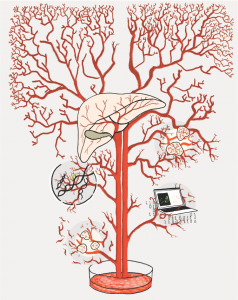
To improve lab-grown liver organoids, researchers will use computational analyses and genetic tools to understand and guide organ development. Credit: Emma Br
“Our lab uses synthetic biology to manipulate genetic pathways in cells. By building these pathways, we understand the process,” said Ebrahimkhani. “It’s like building a car from all the individual components. As I build the car, I understand how it functions.”
Bar-Joseph’s lab will use computational analyses to reconstruct models that help explain how cells differentiate and interact with one another during organ development, an approach termed systems biology.
“Systems biology is like trying to understand the car by taking it apart and looking at its individual components,” said Bar-Joseph. “In this research, we aim to combine synthetic biology and systems biology to understand organ development.”
As part of the grant, the researchers will also develop an outreach program to help educate the public about stem cell and organoid research. They will create videos and a website on the Tomorrow Life platform, a science communication filmmaking initiative directed by Kiani.
Although the grant will focus on liver organoids, the researchers say that their findings could also inform the development of other types of human organoids, such as brain, kidney or retina.



